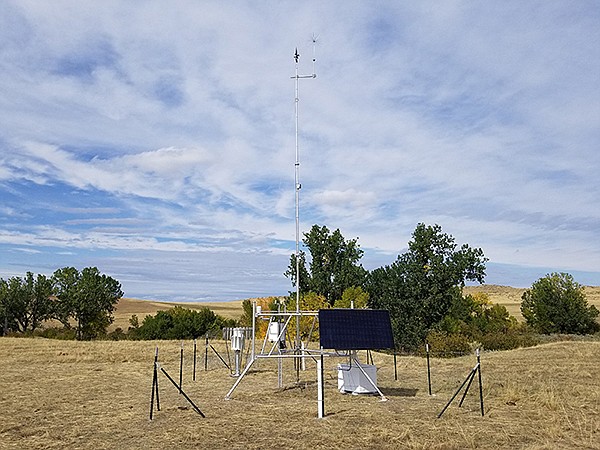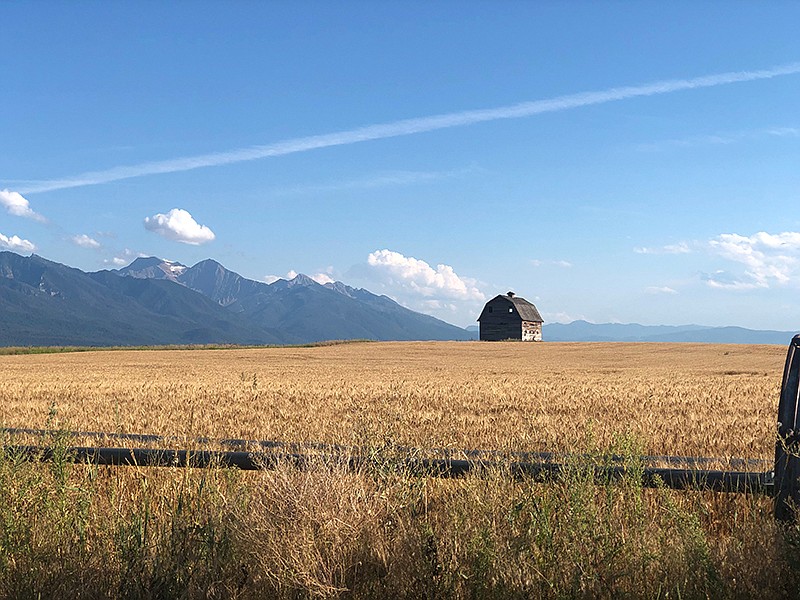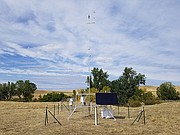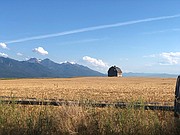UM joins national project to support climate resilience in Indian country
MISSOULA – The University of Montana is partnering in a new program that provides science-based climate information and services to Native American ranchers and farmers in the Intermountain West.
The program, funded with a $1.5 million grant from the U.S. Department of Agriculture’s National Institute of Food and Agriculture, will support and strengthen the role of USDA Climate Hubs in Indian Country. These hubs work across 10 U.S. regions to support agricultural producers and professionals by providing region-specific information about climate change and climate adaptation strategies.
Titled “Native Climate: Strengthening the role of Climate Hubs in Indian Country,” the program will expand climate services to tribal extension agents, agricultural producers and youth educators. A key component will be the hiring of three Native Climate Fellows – one will be stationed at UM’s Montana Climate Office – who will work as liaisons between the Southwest and Northern Plains Climate Hubs and regional tribal nations.
“This project increases equity in representation of Native communities in climate data monitoring and sharing and will help develop protocols to ensure climate data sovereignty protections for tribal nations,” said Kyle Bocinsky, director of climate extension at the Montana Climate Office and Native Climate project co-director. “The Montana Climate Office is honored to have been chosen for this partnership, which will expand the impact of the many tools and services provided by our office.”
UM Associate Professor Kelsey Jensco, director of the Montana Climate Office and state of Montana’s climatologist, said the climate extension aspect of the program is particularly exciting.
“We have been building the capacity and personnel to work with tribal nations the way we have known we need too, and the Native Climate project will build that capacity,” said Jencso. “In the end, all of the data and numbers are meaningless unless we interpret them and get them to the people who will use them.”
In addition to UM, the project team includes researchers, tribal extension educators and climate leaders from the Desert Research Institute, which leads the project, as well as the University of Nevada, Reno, and the University of Arizona.
Native Climate will address long-standing issues related to climate injustice in Indian Country through culturally appropriate information sharing said the DRI’s Maureen McCarthy, Native Climate program director.
“There are huge inequities across the U.S. in providing climate services and resources to tribes,” she said. “Many of these communities are incredibly resilient and forward-thinking in terms of finding ways to adapt to this rapidly warming world, and their knowledge of the landscape pre-dates modern science. This project is an amazing opportunity to build connections and sustainable, trusted relationships that support information sharing among all the participating groups.”
Caiti Steele, coordinator for the Southwest Climate Hub, said the new project will help increase their engagement with tribal representatives on the Hub’s programs, such as their drought outreach and climate adaptation workshops.
“It will be very valuable to learn from Native communities if the information we produce is useful,” she said, “and to learn how we at the Hub can improve our support of climate adaptation in Indian Country.”
Native Climate also will create a new student internship program for Native Climate Reporters at DRI, which will support three or more Native students a year studying communications, journalism, agriculture or STEM. Other components of the project include a “Native Climate Toolkit” – a web-based interactive resource clearinghouse – and impact reporting and alert tools. A Native Climate Advisory Group will help the team engage tribes in the region, leverage resources from partner organizations and conduct culturally respectful project evaluation.
Bocinsky said the search for a Fellow to work out of the Montana Climate Office will begin this spring.





